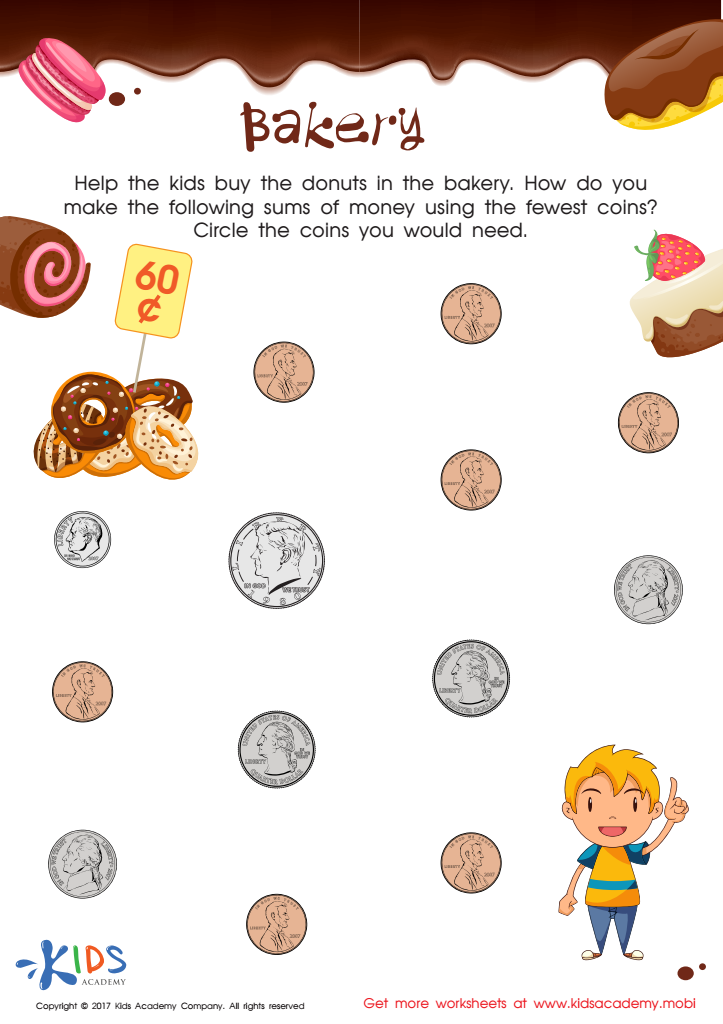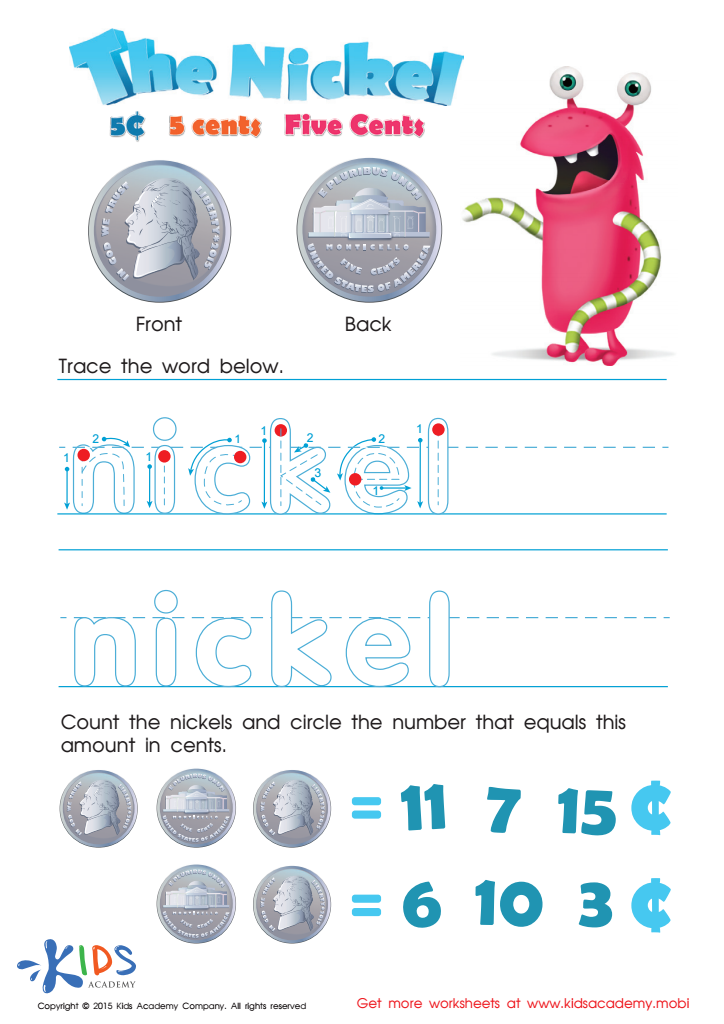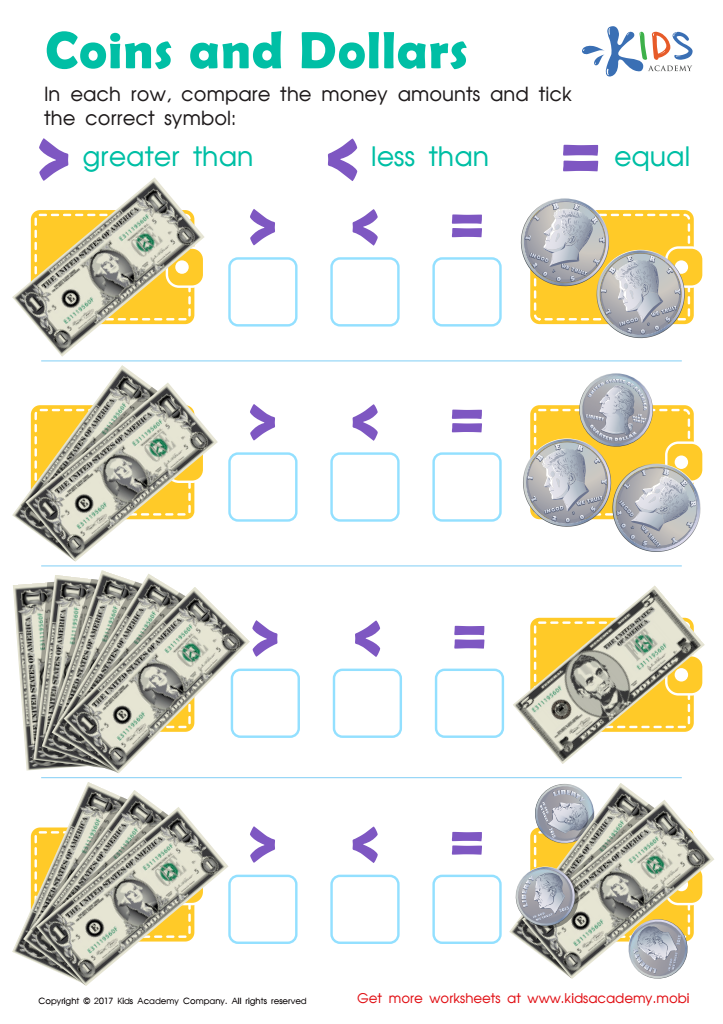Understanding currency Extra Challenge Worksheets for Ages 5-8
3 filtered results
-
From - To
Unlock the world of finance for young learners with our "Understanding Currency Extra Challenge Worksheets for Ages 5-8". These engaging activities help children explore the basics of money in a fun and interactive way. Perfect for early grade students, the worksheets cover recognizing, counting, and using coins and bills. Through practical exercises and creative scenarios, kids develop a solid foundation in financial literacy. Tailored for various learning styles, these worksheets not only reinforce math skills but also teach important life lessons about saving, spending, and budgeting. Prepare your child for the future with these essential money management tools.


Counting Coins Worksheet


Five Cents or the Nickel Money Worksheet


Money: Coins Dollars Printable
Understanding currency and its value is a foundational life skill that benefits children well beyond the classroom. For young learners aged 5-8, incorporating activities that challenge them to understand money basics helps in several crucial ways. Firstly, it promotes mathematical fluency, strengthening their ability to add, subtract, and understand numerical relationships.
Secondly, these activities teach essential life skills. Knowing how to count money, make change, and budget instills a sense of financial responsibility and independence at an early age. It provides them with the groundwork for future financial literacy, empowering them to make informed economic decisions as they grow.
Furthermore, engaging children in currency-based challenges can improve their problem-solving abilities. Real-world applications of these challenges demand critical thinking and practical problem-solving, fostering cognitive development.
Beyond academics, these activities also create opportunities for social interaction. Children can engage in collaborative group work, role-playing scenarios like shopping, where they practice polite conversation and negotiation skills.
Most importantly, understanding currency introduces children to the concept of work and reward. This nurtures an appreciation for the value of items and the effort it takes to earn money, laying the foundation for a disciplined, well-rounded mindset.
In sum, parents and teachers should prioritize these educational experiences to develop numeracy, financial habits, problem-solving skills, and social competencies in young children, setting the stage for lifelong success.

 Assign to My Students
Assign to My Students
















